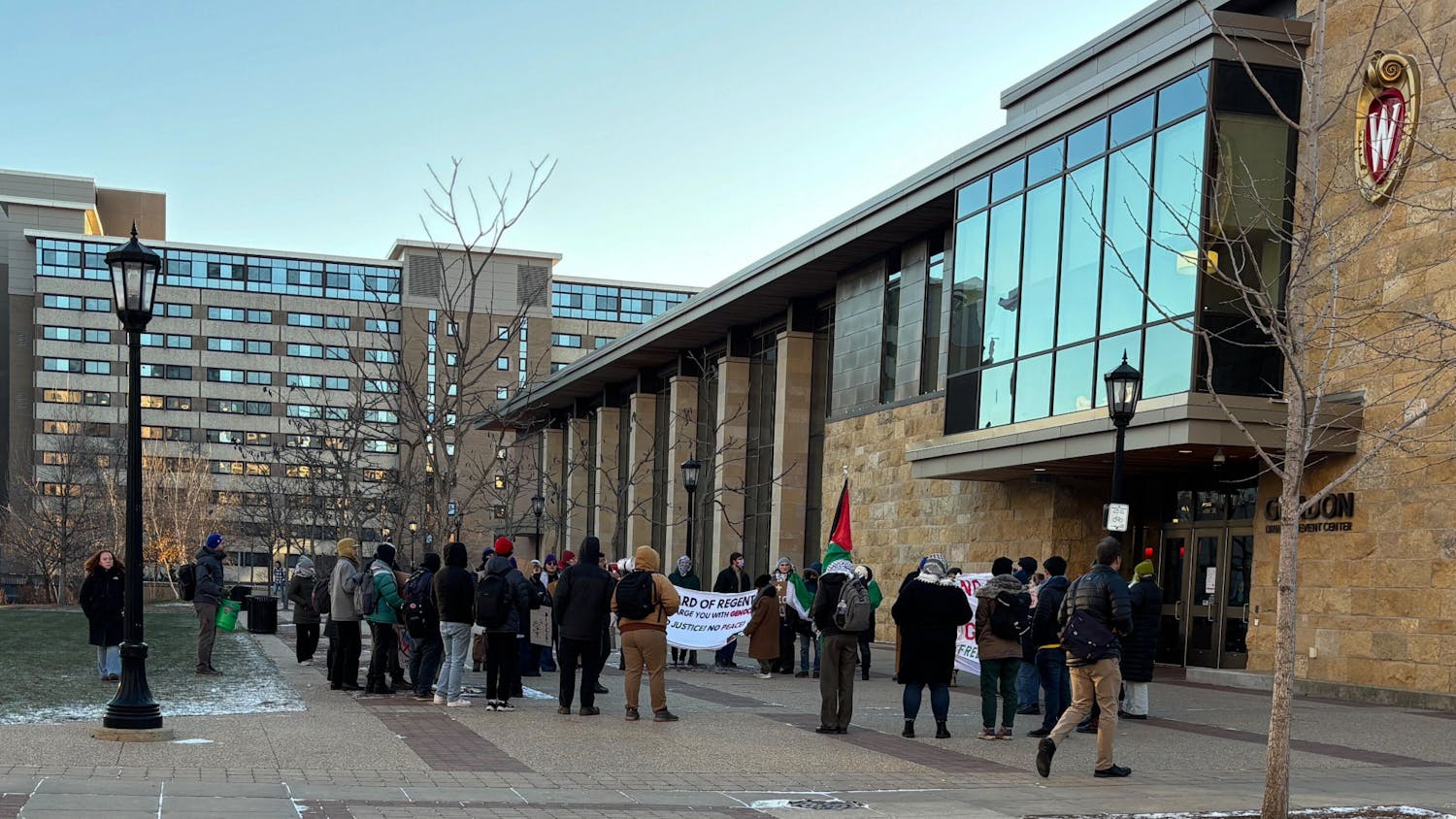By now, most people on the UW Campus are familiar with the story surrounding the Delta Upsilon Fraternity. Two African-American female students were trespassing on the fraternity’s property when, allegedly, a couple members of the frat drunkenly yelled racist and classist epithets and threw a glass bottle in the direction of the two girls. Thankfully, no one was hurt.
As an individual who views himself as an ally, and more importantly a friend, to minority students on campus, this issue hits extremely close to home. Unlike most people I have come across in regards to this issue, I am not going to defend myself by noting how many “black friends” I have, nor am I going to list the ethnic studies courses I have taken. Even more importantly, I am not going to say, “I know what it feels like,” because I don’t. I did not choose my skin color, it was simply the hand that was dealt.
I was once a member of the Delta Upsilon Fraternity. There, I said it. If that makes this article “biased,” please feel free to stop reading here.
I stopped attending events about two years ago because I realized that the fraternity lifestyle is based on three things: parties, members of the opposite sex and alcohol. One of the main reasons I disassociated myself from this scene was because of the insensitive ways that some individuals treated issues pertaining to race. It was astonishing how many times I heard “the N word” casually tossed around by white friends because they assumed that we were the same because of our similar skin color.
With that being said, here is what I take away from this particular incident:
Dialogue. Racism is real. It exists. And it is highly prevalent on the UW campus. While it is not an issue unique to this campus, it is something that needs to be addressed explicitly, directly and immediately. To do this, we must first change the dialogue we use in situations of this magnitude and sensitivity. To claim that “the entire campus is racist” or “I’m not racist and I’m in a frat” only separates us further, and fails to address the root of the problem. If we are not careful about our language, it becomes impossible for us to communicate.
Does the individual represent the whole? Whenever there is an incident such as this, the organization almost always issues the statement, “these individuals do not represent the group as a whole.” This is particularly troubling on two levels. First, the president of the fraternity, who was out of town at the time of the incident, is taking heat for an issue that was entirely out of his hands. In this sense, the individuals do not represent the whole.
On the other hand, without even knowing the full details of the situation, the Interfraternity council and other Greek-affiliated organizations said in a statement that this does not reflect the entire UW-Madison Greek community. While I understand that this is a political move, there is undeniably something in Greek life that many students, including myself, have found troubling for years and years. This is not a new problem and to continue to deny any connections between fraternities and inappropriate behavior would be a disservice to the larger campus community.
The problem is with fraternities and sororities. There is nothing wrong with having a single individual who has a particularly bad idea. However, it becomes a very large problem when multiple individuals bounce bad ideas off one another. Fraternities and sororities group like-minded people together. Ever heard of “group think?” When ideas that are homophobic or racist get thrown in the mix, this situation becomes increasingly disturbing.
Alcohol. It is the ultimate cash cow of Wisconsin and it seems to be the unspoken truth underlying many scenarios such as this on campus. The university makes money not only in pitcher sales at the union, but more importantly by maintaining its reputation as one of the nation’s top-ten party colleges. Alcohol does not create racism, but it certainly leads to more reckless behavior.
What I would like to see: Everyone is eager to address the problem; no one wants to create the solution. For once, I would like to see an individual who is called out for his/her discriminatory actions use his/her unique position as an opportunity. A situation like this is not only a tragedy, but also a chance to create change. How incredible would it be to see a member of this fraternity step out—rather than deny allegations—and admit that there are actually aspects of this Greek lifestyle that do not serve to better the community? As a former member of Delta Upsilon, it is easy for me to say this. However, ask anyone else and I am fairly certain they will tell you, “I do not represent the whole.”
I could write for days on the frustrations of this topic, but my voice can only reach so far. At the end of the day, the solution is both extremely complex and overly simple. Look at Greek life on campus. Who has the houses lined up on Langdon with red cups polluting the sidewalk? Who has the resources to get away with alcohol-related infractions every other semester? Multicultural fraternities continue to handle their business providing community services without breaking the rules. They do this all while handling issues such as this in the precise manner that the university expects from them. Yet, this instance will probably blow over in the following weeks and many frat bros will continue to party hard without ever taking a moment to recognize their privilege.
Matthew is a student at UW-Madison. Please send all feedback to opinion@dailycardinal.com.





